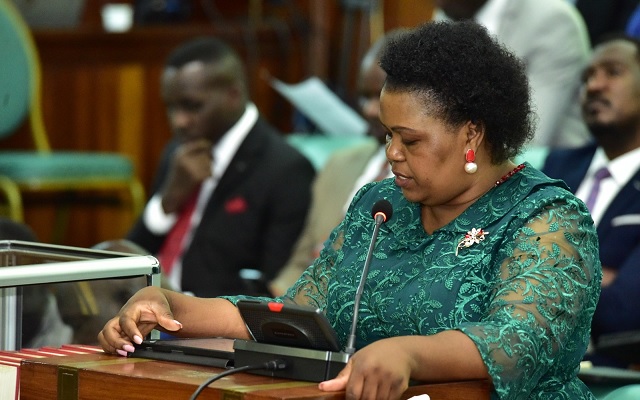
Kampala, Uganda | THE INDEPENDENT | The Association of Uganda Emptiers Limited has petitioned Parliament to consolidate licenses and charges paid by private companies dealing in faecal sludge collection as well as disposal under one agency to ease operations.
The petitioners, comprising 40 companies and over 480 individual members are private operators who provide sanitation services specializing in faecal sludge collection, transportation, and its safe disposal and management as well as toilet building and emptying, and unblocking of sewers and septic tanks.
In a petition presented by the Kiboga District Woman Representative on their behalf during a plenary sitting on Thursday, the petitioners asked the government to remove the disposal fees charged by sewage treatment plants for faecal sludge since wastes are recycled into manure for sale.
The petitioners are aggrieved by the sector’s operational challenges, including multiple charges by different government agencies, poor waste disposal, and limited sewage treatment plants which affect service delivery given the volume of faecal sludge.
They also argue that they are hampered by multiple reporting to various government regulatory agencies and the requirement to pay multiple charges which are charged at every stage of their operations. Some of the levies include trading licenses, and income tax which is levied on commercial goods vehicles.
Others are; the disposal fee to the National Water and Sewerage Corporation-NWSC, the operational license fee paid to National Environment Management Authority-NEMA, and the environmental and sanitation service fee paid to Kampala Capital City Authority.
The Deputy Speaker of Parliament Thomas Tayebwa directed Parliament’s Tourism, Trade, and Industry Committee to study the petition and report back to the House with appropriate recommendations within 45 days before the House takes a decision.
In Uganda, the rapid population growth in the urban areas has greatly outpaced the ability of the urban authorities to provide adequate management of waste, especially faecal sludge. As a result, the government engages septage dealers through Public Private Partnerships – PPP for effective management of faecal sludge treatment plants.
About 90 per cent of the population in the metropolitan area relies on on-site sanitation facilities (pit latrines and septic tanks), whereas 50 per cent of households share one sanitation facility and faecal sludge constitutes over 96 per cent of human waste in the metropolitan area, yet the National Water and Sewerage Corporation(NWSC) only covers a few sections of the country.
More than 50 per cent of pit latrines are un-lined and filled with solid waste and only 20-25 per cent of the toilets have ever been emptied by a service provider, the rest have either been abandoned or been emptied directly into the environment, posing health risks.
Access to safe water, sanitation, and hygiene is the most basic human need for health and well-being as enshrined under the Sustainable Development Goal – SDG 6 of the United Nations.
*****
URN
 The Independent Uganda: You get the Truth we Pay the Price
The Independent Uganda: You get the Truth we Pay the Price



